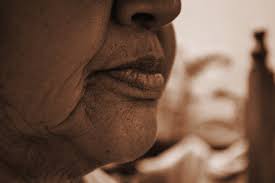Those who have been active on social media lately may be aware of a new internet controversy: Sephora kids. Employees and fellow customers have taken to TikTok over the past month to give accounts of wild 10-year-olds wreaking havoc in makeup stores across America. According to these stories, these children sweep through the stores in search of trendy anti-aging and makeup products from brands such as Drunk Elephant and Rare Beauty.
This is no mere generational rivalry. It is not just a petty attempt to ridicule the behavioral issues of the “iPad kids.” It is a problem that begs an important yet baffling question: Why on Earth would these preteens need anti-aging products?
The short answer is that they absolutely don’t. Many responses to these “Sephora 10-year-old” stories attempt to place blame on the children. Others point out flaws in the actions of the children’s parents. Both forms of criticism are warranted, to a certain degree. However, they fail to address the real source of the issue: advertising.
If you have been on the internet at all in the past two decades, odds are that you have been subject to some sidebar ad or pop-up encouraging you to buy some sort of product that will make you appear younger than you do now.
Some of these products may simply be some liquid to drop on your face, but others take a turn for the ridiculous, such as a $3,500 dystopian-looking full face-and-neck mask to blast your skin back to your teenage years with the concentrated power of 1,080 LED lights. Some less elaborate gadgets include a drinking straw that curves to allow the user to drink horizontally, which the sellers claim will reduce the likelihood of developing wrinkles along the side of the mouth. Heaven forbid one becomes unsalvageably hideous from sipping their morning latte.
If the threat of showing one’s age is so great that it compels grown adults to needlessly purchase these items, then of course it stands to reason that young children would be influenced in an equal, if not greater, manner to do the same. To add to this problem, many cosmetic brands—like the infamous Drunk Elephant—cloak themselves in bright, colorful packaging, making the products that much more appealing to young kids.
This is certainly nothing new. I have vivid memories of watching television as a child and having my cartoons interrupted by bright, fast-paced commercials advertising the newest Olay eye cream that promised to turn the clock back by a decade. Looking back, I realize that while these advertisements were likely meant to influence the spending of my mother—who they wagered would be in the room caring for me—and yet, they were still planting seeds in my own mind at five years old.
“Why would someone need to buy some lotion to look younger?” I would wonder. “What if I start to get wrinkles or spots? What do I need to buy then?” I remember looking into the mirror at my eyes at about 11 years old and wondering if the fold where my lower eyelid met my cheek was an eye bag and if I needed to run to Target straight away to buy some tightening cream.
When this mentality is left to fester or is encouraged by more and more exposure to advertising, it can lead to people taking extreme measures. Some, like The New York Times’ Jessica Grose, find themselves influenced into an operating room. Grose published a piece this month detailing her experience before and after receiving a Botox injection. She realized that in this digital age, her career would demand that she appear frequently on camera and that this would lead to increased and unfiltered scrutiny of her appearance.
However, she goes on to describe her disappointment with her own supposed “perfection” after the injection. Her face was more conventionally beautiful, but she had lost herself in the process. The things that made her look unique had disappeared behind her beauty.
These cases are what the younger generation sees when they are not looking at screens. They see the adults in their lives who work equally as hard to match some unachievable standard of flawlessness. My generation sees the same.
When the subject of looks comes up in my family, I see how hard my parents work to keep me from going down the same path of insecurity. They tell me I’m beautiful. They tell me that nothing is the matter with the way I look, but their courtesy only extends to me.
I see our Scottish heritage in the proud bridge of my mother’s nose. She tells me it looks “witchy.” In my father’s sturdy core I see the strength that used to lift me onto his shoulders. He tells me he is simply overweight. They lived out their younger years with the freedom to simply walk away from a television set when they no longer wanted to see the advertisements, and yet they still could not escape their cries of “imperfection.”
I am now 20 years old. By most metrics, I am still a young woman in the prime of my life. But every day, I find a reminder of what I no longer am. I cannot run as fast or jump as high as I could in high school. Old and new pains now slow me down and prevent me from doing certain activities that I enjoy. I now need caffeine to function throughout the entire working day, whereas I could not seem to sit still for a moment when I was 13.
Every morning when I wake up I feel these pains and find new blemishes, and a voice whispers to me: “Your time is running out. You are older. You have changed.”
This is why preteens are spending hundreds of dollars on fountains of youth they will not need. This voice chants in their heads as it does in mine. It tells them that if they show the freckles that stay on their skin from too much time spent running out in the sun, and if they show the thin lines that adorn their eyes from too many hours spent laughing with friends, then they will no longer be worth anything.
Life was meant to be worn on our bodies. Our faces are canvases on which we paint our stories. They are masks that show the world how our time on this planet has changed us and made us. Hiding these changes would not only be dishonest; it would be a disrespect to the gift that is life. Instead of a message of unworthiness and shame, let us guide the next generation by sending them a kinder message than any advertisement ever has.
Our time is running. We are living. We are changed.











